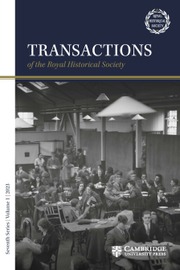Revolutionary Syndicalism in France
A comprehensive study of the ideas and practice of the French Labour Movement between 1900 and 1914. Part one sets the syndicalist movement against its historical background, pointing to the forces which helped to shape the attitudes of the French worker, French political culture, economic developments, the influence of earlier socialist and anarchist thinkers and the failure of parliamentary democracy. The central section examines in detail the ideological development of the French Labour Movement during the syndicalist phase. As Professor Ridley points out, syndicalist ideas are interesting in their own right as part of the history of socialist thought but also because many of them are echoed today by supporters of the 'extra-parliamentary opposition'. There are obvious parallels too, between the 'direct action' of syndicalism and the tactics of present-day movements. In a final section professor Ridley discusses syndicalism in the wider political and ideological context of its time, taking into account the development of the inter-war years.
Product details
October 2008Paperback
9780521089067
288 pages
229 × 152 × 16 mm
0.43kg
Available
Table of Contents
- Part I. Historical Background:
- 1. National character and revolutionary tradition
- 2. From craft to industry
- 3. The repressive state
- 4. Proudhon and mutual aid
- 5. Blanqui and the barricades
- 6. Bakunin and anarchism
- 7. The socialist tower of babel
- 8. The betrayal of the politicians
- 9. The growth of an organised movement
- 10. Strength and organisation of the C.G.T
- Part II. Principles and Practice of the C.G.T.:
- 11. Reform and revolution: the twofold purpose
- 12. Political neutrality and the politics of syndicalism
- 13. The autonomy of labour and direct action
- 14. The theory of strike
- 15. The strike in practice
- 16. The tactics of the strike
- 17. Subsidiary forms of direct action
- 18. Labour as a political pressure group
- 19. Antimilitarism and antipatriotism
- 20. Genealogy of the general strike
- 21. The changing picture of the general strike
- 22. The general strike as a myth
- 23. Organised labour and the syndicalist utopia
- 24. A theory of syndicalism
- 25. Conflicting voices in the C.G.T.
- 26. Leaders and followers, theory and practice
- Part III. Ideological Context:
- 27. The revolt against reason
- 28. Nietzsche and the transvaluation of all values
- 29. Bergson and creative evolution
- 30. James and the pragmatic approach
- 31. The revolt against democracy
- 32. The discredit of French democracy
- 33. Nationalism, monarchism and the right
- 34. Fascism: the alternative path
- 35. Sorel: a moralist in search of action
- 36. The philosopher and the labour market
- 37. The militants and the activist temper
- 38. Syndicalism as a philosophy of action
- 39. Conclusion.









